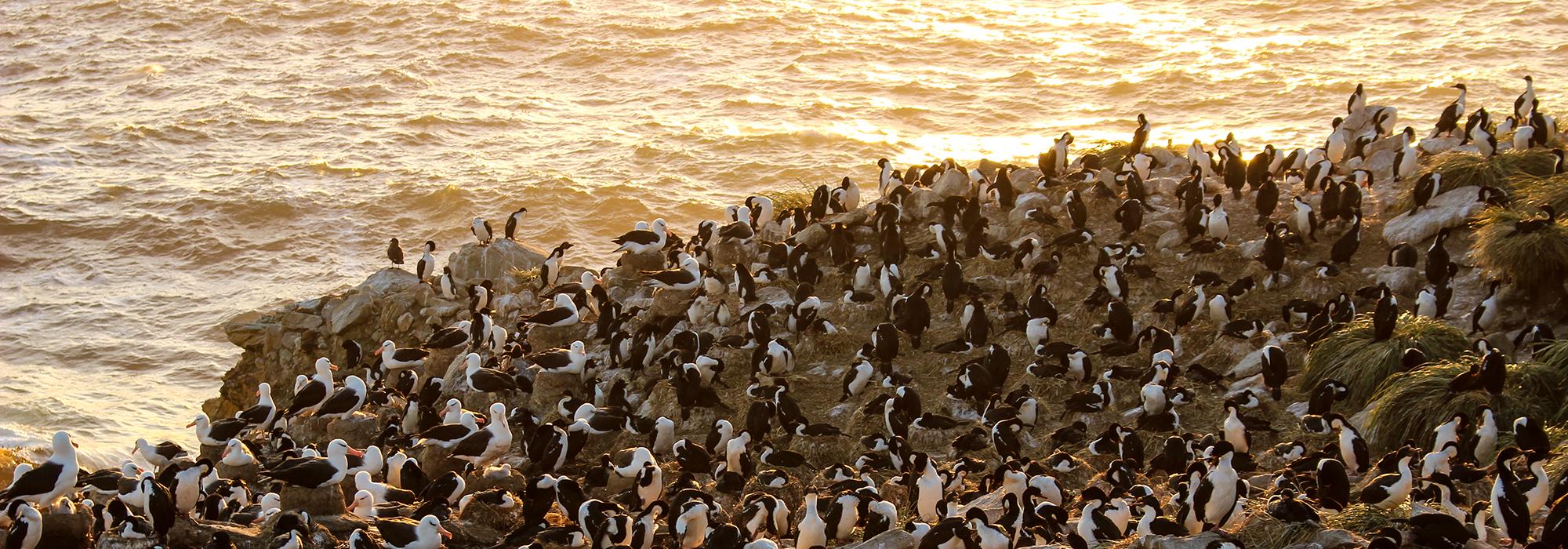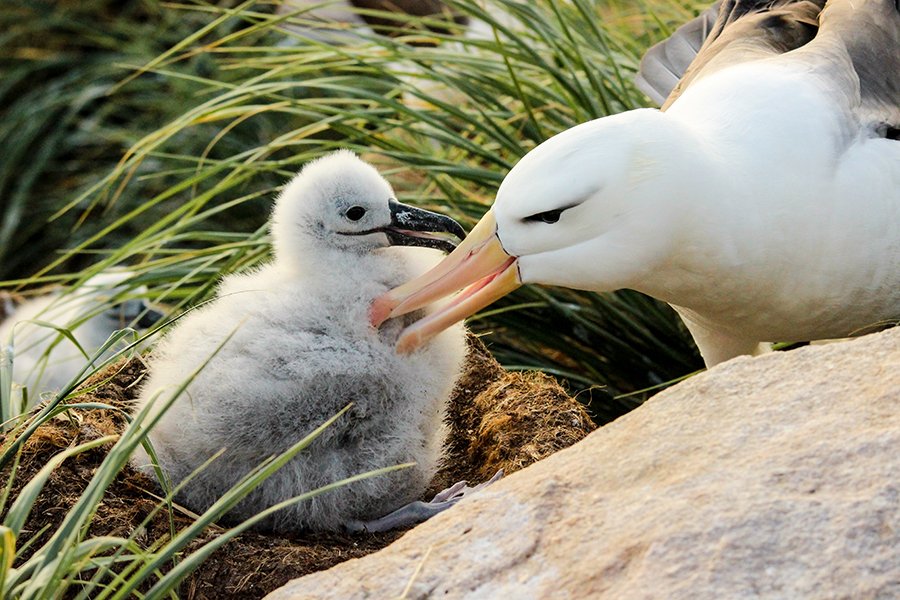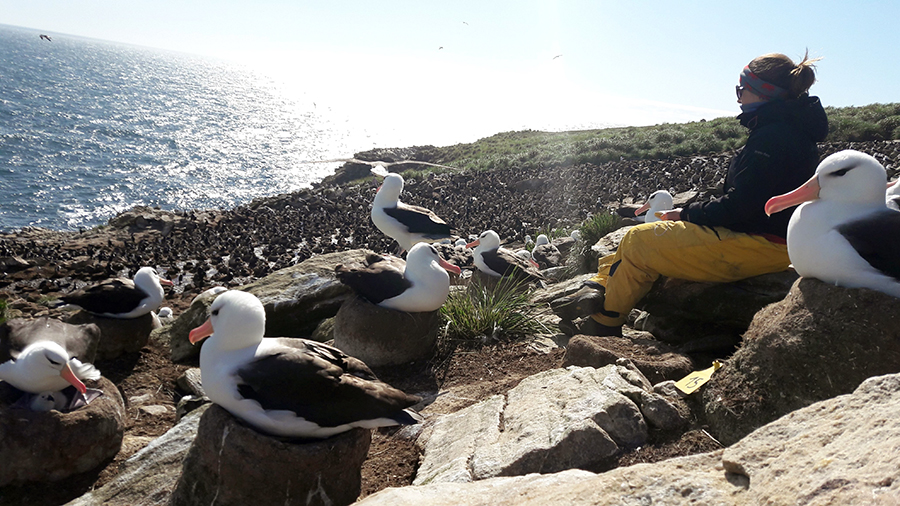
Winter in the Falkland Islands
Thanks in large part to the Graduate Research Expenses Grant offered by Merton, I was able to spend two months of my winter in the Falkland Islands, where I undertook an internship with the support of Dr Paulo Catry, a seabird researcher based at ISPA Instituto Universitário, Portugal.
On New Island, one of the westernmost islands in the Falklands archipelago, Dr Catry has led a 15-year project studying the island’s c.30,000 pairs of black-browed albatross. As a whole, the Falkland Islands support an estimated 85% of the world population of black-browed albatross, meaning research projects like this are vitally important in developing a global understanding of the behaviour and ecology of these threatened seabirds.
I joined the team in late November, approaching the peak of summer in the islands and when breeding activity on the island was in full swing. As well as lending a hand to the day-to-day fieldwork required to keep a project like this running, I was here to carry out my own study into the role of courtship displays in albatross parental care.
Beyond their impressive flight capabilities, albatrosses as a family are perhaps most famous for their extravagant pair displays, in which couples dedicate hours to vocalising, bowing, and wing flapping to their partners, ostensibly as a way of creating or maintaining pair bonds. What is less well-known, perhaps, is that these displays continue long after the pairs have formed or reunited, and form a conspicuous feature of the breeding season, with birds exhibiting pared-down versions of these displays as they swap parenting duties with their partner. However, we have very little understanding of why these displays have evolved or of the role they might play in the lives of albatross.

To get closer to an answer to these questions, I spent the vast majority of my two months sat in the midst of the albatross colony – a cold job requiring a thick wind suit despite the summer, as the Falkland Islands are one of the windiest places on earth! I laid in wait until parents returned to my target nests to take over incubating or brooding of the chick from their partner, then recorded notes on their behaviour as they carried out the displays preceding the changeover. Albatross are very tame birds, and so provide an easy study system to work with – I was able to keep an eye on my target nests from just a few feet away, no binoculars needed! By following the activities of around 100 pairs daily during incubation and early chick-rearing, I’ll be able to link their behaviour during the display to their subsequent parenting behaviour, and through this hopefully start to illuminate the functions of this little-explored behaviour. Watch this space!

When I wasn’t sitting amongst the albatross, I was able to lend a hand in the wealth of other research being carried out on the island, which took me ‘up close and personal’ with three species of penguin, the endemic Falkland skua, and the world’s most endangered raptor, the curious ‘Johnny rook’ (or Striated Caracara). Through this I was able to make contact with researchers studying some of the most elusive, and vulnerable, animals on the planet, giving me a valuable insight into the wider world of ecological research.
My time in the Falklands was truly a remarkable experience and I am so grateful to Merton for the financial support, as well as the many donors who make grants like this a possibility. Thanks also to the New Island Conservation Trust for giving their permission for me to work on the island, to Paulo Catry for supporting my internship, and to the many other fieldworks on New Island who made my experience so incredible.